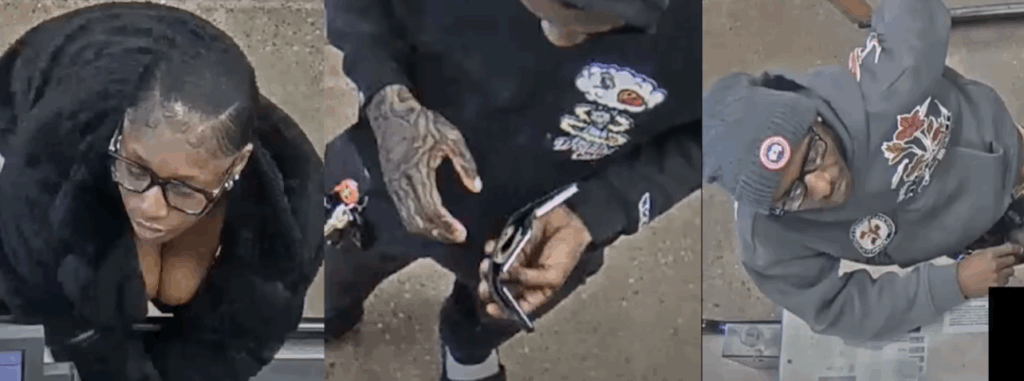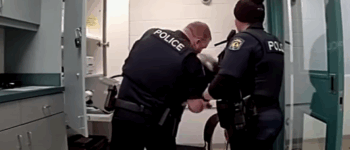Police agencies across central Indiana are investigating what they describe as a highly organized counterfeiting operation targeting Kroger supermarkets. Authorities say a group of suspects has successfully scammed at least 14 stores in the Indianapolis area alone, using washed counterfeit $100 bills to purchase prepaid debit and gift cards. Losses are already approaching $12,000, and investigators warn the scheme could continue unless the suspects are identified and apprehended.
The Incident That Sparked the Investigation
The case first drew attention last week when surveillance cameras inside the Kroger in Danville recorded a man approaching the checkout counter to load money onto a prepaid debit card. He handed the cashier several crisp $100 bills, which were immediately tested with counterfeit detection pens. The results came back clean, showing no sign of fraud.

The man was not alone. Detectives later discovered that he was working with at least two accomplices—a woman who purchased a Visa gift card with more counterfeit bills, and another man who appeared to act as a lookout. The trio completed their transactions without raising suspicion and walked out of the store.
It wasn’t until much later, when the store’s cash was processed through a more advanced counting system, that the $800 in fake bills was flagged as counterfeit.
Expanding Pattern Across Central Indiana
Investigators quickly learned that this was not an isolated event. According to Detective Nate Lane of the Danville Police Department, the same suspects are believed to have carried out at least 14 similar scams at Kroger locations across Indiana, primarily in and around Indianapolis.
In each case, counterfeit $100 bills were exchanged for prepaid debit or gift cards. Those cards are then loaded with legitimate funds, effectively turning fake money into “clean” digital cash that can be spent anywhere.

Detective Lane explained:
“As long as the suspects can get past the initial transaction, the money instantly becomes legitimate once it’s transferred onto a card. That makes it extremely difficult for retailers to recover their losses.”
Why Standard Security Failed
One of the most concerning aspects of this scheme is that counterfeit detection pens—widely used by cashiers—failed to identify the fake bills.
The reason lies in a method known as bill washing. Counterfeiters bleach the ink from genuine low-value bills, such as $1 or $5 notes, leaving behind authentic U.S. currency paper. They then print new $100 bill designs on that same paper using standard printers.
Because the paper itself is real, counterfeit pens cannot detect the fraud.
“They’re literally washing off smaller bills and reprinting them as $100 notes,” Detective Lane said. “To an untrained eye, they can look incredibly convincing.”
A Broader Risk Beyond Retail Stores
While supermarkets have borne the brunt of the losses so far, authorities warn that the threat extends far beyond corporate chains. Individuals conducting person-to-person transactions—such as garage sales, online marketplace deals, or secondhand purchases—could also be tricked into accepting counterfeit bills.
In some recent cases, all the fake bills carried the same serial number, an obvious red flag. Detectives encourage people to take extra time when accepting large denominations and to verify serial numbers whenever possible.
Community Help Needed
The Danville Police Department, along with other agencies across central Indiana, is asking the public for help. They hope that someone may recognize the suspects caught on camera and provide information that leads to their arrest.
For now, the investigation continues, but authorities emphasize the need for vigilance. With counterfeit schemes becoming increasingly sophisticated, even experienced retailers can fall victim.
Detective Lane summarized the danger best:
“This isn’t just about big box stores. Anyone—whether you’re selling a used couch online or running a cash register—could end up with worthless bills in your hands.”
Authorities encourage anyone who notices suspicious bills to immediately report them to local law enforcement or the U.S. Secret Service.


